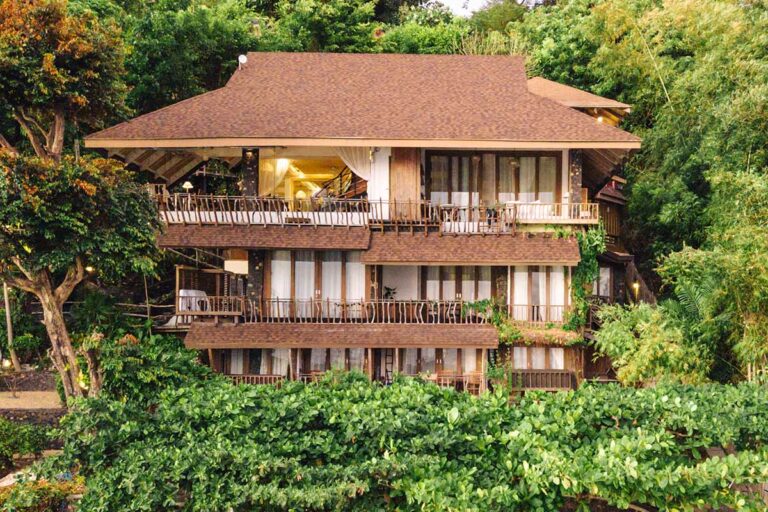WHAT ARE THE WAYS TO CONQUER YOUR FEAR OF FREE-DIVING?
- Try Psychotherapy
- Practice Your Breathing in A Pool
- Learn Meditation
- Take a Refresher Course
- Accept and Acknowledge Yourself
If you are someone who experiences such fear of diving or the deep waters, in general, then allow this article to encourage you to conquer it. Most scuba divers started with snorkeling and free-diving. The best destination to go to for your first-time free-diving is a beach resort in Batangas where the waters are more tranquil.
With free-diving, there is no need for you to gear up with oxygen tanks and snorkels are optional. While snorkeling and free-diving sound almost the same, the latter is more of a passive activity. It is a water sport wherein you only dive deep into the ocean for as long as you can hold your breath without snorkeling, wearing only fins and masks. The greatest thing about free-diving is the whole new relationship you will cultivate with the underwater world. If that fact triples your fear, here are some of the ways you can conquer it.
TRY PSYCHOTHERAPY
Fear accompanied by sweaty palms, fast heart rate, and an upset stomach is the body’s natural response to any recognized danger. While some of these constitute genuine threats, others do not. The brain rewards you by allowing you to feel good about avoiding any perceived dangers. Thus, they become validated with irrational fear.
Hypnotherapy is a form of psychotherapy. This kind of therapy develops the mind to learn altered perception, responses, and feelings towards situations wherein fear is the initial instinct. Contrary to many beliefs, hypnotherapy is not mind control or brain-washing. The mind is so powerful it can be trained to conquer any fear through therapy. While being subjected to this kind of therapy, you will also learn relaxation techniques that can be useful in case you panic underwater.
PRACTICE YOUR BREATHING IN A POOL

Most triathletes would practice their breathing in a shallow pool. This will allow them to count the minutes they can remain at the bottom of the pool. As the days pass by, they increase the duration until they determine their limit. From then on, they start to practice being completely submerged in the water for the amount of time they can.
For a beginner free-diver, allow yourself to practice holding your breath for a good 30 seconds. As you get confident with thirty seconds, gradually increase the duration. In this manner, you will train your lungs and mind to be at the bottom of the pool for a longer time. Typically, free-diving can take about four to five minutes until you need to swim back to the surface to catch some breath.
For people with higher lung capacity, four to five minutes underwater is a brief amount of time. Professionals can dive for as long as ten or fifteen minutes.
LEARN MEDITATION
Meditation is necessary to avoid panicking underwater. Equipment failure is a frequent cause of free-diving accidents but panic attacks remain on top of the list. In the process of panicking, you are at risk of acting irrationally and could cause accidents. As you count the minutes and dive deeper into the ocean, you are susceptible to encountering failure with the equipment. These scenarios can get you off-guard. But through meditation, you are calming yourself before diving and preparing your mind to remain calm no matter the circumstance.
While it is accurate that being under the waters can make you calm down, free-diving would require prior preparation. Even confident and professional divers meditate before free-diving because they acknowledge the risks associated with panic and all the more so for a first-time free-diver.
TAKE A BEGINNER OR REFRESHER COURSE

If it is your first time, getting a beginner course will help you learn the do’s and don’ts as well as the proper free-diving techniques. Similarly, make sure to take a refresher course if you are free-diving for the second or third time around. Classic mistakes that others commit are directly performing the activity after months or years since they have done it last.
While courses can be costly, forgoing the cost is definitely not worth testing your mental state and subjecting yourself to potentially risky situations. Free-diving, just like scuba-diving, is not something easy to do like snorkeling. While the activity does not involve much equipment like snorkeling, it still requires much focus and determination.
ACCEPT AND ACKNOWLEDGE YOURSELF
More importantly, accepting your limits and acknowledging how far you have gone in the process of conquering your fear are ways to feel encouraged that you will be able to do it. Do not be discouraged with how other people learn to free-dive quickly. Remember, just like marine life, not all fish in the sea swim as fast as sailfishes. To each his own ways and pace of learning. Time and patience remain the golden elements of free-diving. They are exercised prior to and during the water activity. Even the best divers experience their old fears.
KEY TAKEAWAY
The greatest thing about conquering your fear of the deep waters is you get to fall in love deeper with the underwater world. Once you have learned to conquer your fear of the water and diving, you will be able to experience the beach more. You do not merely enjoy the sea from the shore, but you also get to be with the sea. Start repurposing your vacations and holidays by visiting a beach resort in Batangas to free-dive and snorkel. Cultivating a relationship with aquatic life is not something you will experience from swimming near the shoreline.




